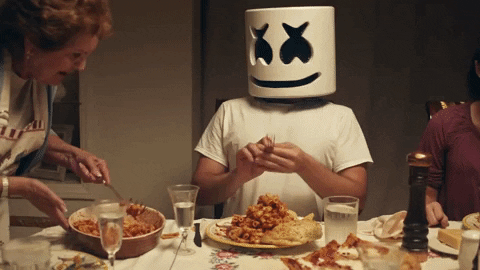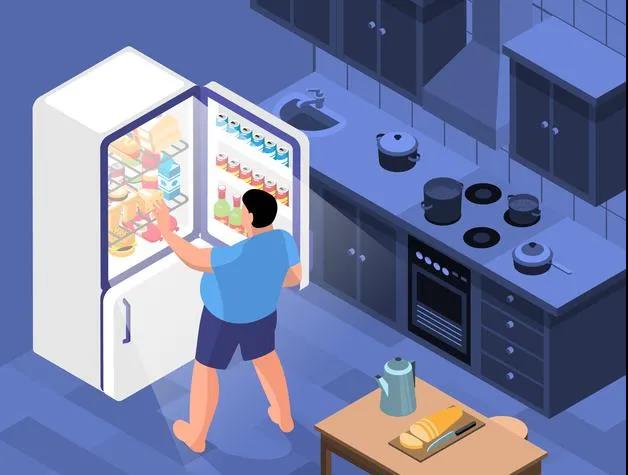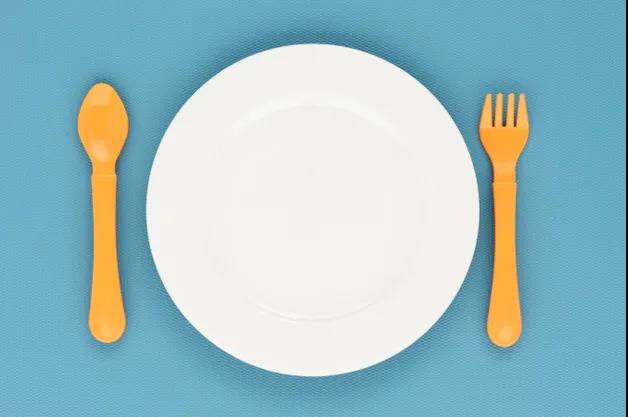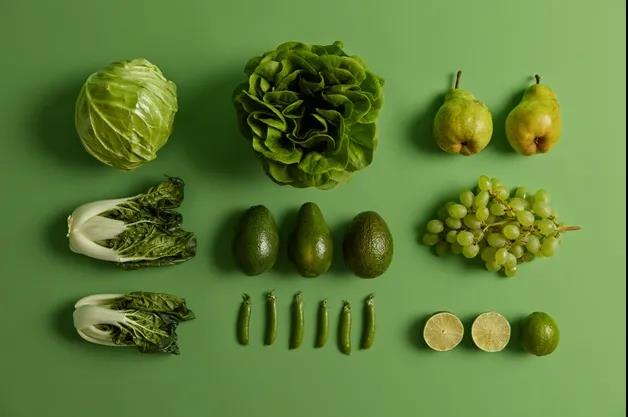
Some people are obviously full, but insist on eating up their meals; while some “self-disciplined” people dream of getting stomach smaller and insist on dieting.
Will our stomachs really grow bigger and bigger like a balloon when stuffed, and become smaller as they become hungry?

Customize a scientific appetite for the stomach and teach you 6 ways to let you “control your mouth” unknowingly.
Why are some people appetite good while some poor?
One’s appetite cannot simply be depended on the size of the stomach.
People’s perception of their own stomach volume is transmitted to the brain through the gastric nerve, and hunger and satiety are managed by the central nervous system.
People who have a good appetite will become excited when they see food, and their stomachs will seem to be unsatisfactory; others will be full after just two bites. If you look at yourself, you can eat two more bites when you are full.

When a normal person is completely fasted, the stomach volume is about 50-100 ml.
The so-called “big eater” may not have much larger stomach capacity than ordinary people, but the elasticity of the stomach is inherently better.
If you eat a lot of food for a long time, the stomach wall will thicken, the peristalsis will be quickened, and the appetite will naturally increase.
Attention:
It is necessary to exclude diseases that increase your appetite, because there are 6 kinds of diseases that are just showing “good appetite”:
Hyperthyroidism, diabetes, central obesity, duodenal ulcer, hypothalamic syndrome, abnormal liver function.
Will the stomach grow bigger according to the food intake?
The stomach is a very elastic organ, and the size of the stomach cavity can vary within a limited range.
After a person eats food, the food enters the stomach through the esophagus, the stomach wall is flexible, and the volume gradually increases, and the stomach wall gradually becomes thinner.
Therefore, the size of the stomach is different when it is empty and when it is full.

The amount of food that the stomach can hold after expansion is called “stomach capacity”.
Generally speaking, when a person is completely fasted, the stomach volume is about 50-100ml; after a normal full meal, the stomach volume is about 1200-1600ml, and it can reach 2000ml after eating support.
When a person has an empty stomach and a full stomach, the difference in gastric pouch size can be as high as 20 times.
Frequently making the stomach in an expanded state will weaken its expansion and contraction function, and the stomach wall is easy to relax when you are fasting, so that the stomach wall needs more food to produce the same tension.
Therefore, eating too much often may temporarily “stretch” the stomach, but the stomach capacity is actually unchanged.
Why does the stomach seem getting smaller after dieting?
Human hunger is not produced by the stomach, but by the nerve center of the brain. The stomach is just a “receiver.”
Under normal circumstances, the brain reflects the true state of the stomach, but under conditions such as indigestion and decreased spleen transport and chemical function, there will be bloating without a full meal.

Over dieting, the glands that secrete gastric acid do not work properly for a long time, which will cause them to slowly degenerate in function, and glands will shrink over time.
Therefore, if you feel that you are eating less and less after a period of diet, the stomach’s receptive function and neurofeedback are weakened, but the volume of the stomach has not decreased.
Do 6 things for your diet and treat your stomach kindly
Eating too much can easily lead to obesity, diabetes, gastrointestinal diseases, acute pancreatitis and other diseases. It can also affect heart health and even increase the risk of gastrointestinal cancer. Doing these in your daily diet is more friendly to the stomach:
Choose high-fiber, low-fat foods
High-fiber foods, such as vegetables, fungi, fruits, coarse grains, etc., are all masters at eliminating hunger and make people feel fuller. They are also recognized as low-calorie foods.

To control appetite, avoid high-fat foods. In meat, white meat such as fish, shrimp, chicken, or lean red meat contains lower fat and high protein, which makes the feeling of fullness last longer.
Chew slowly
Generally speaking, it is best to ensure that each bite is not less than 5 times, and the number of times for foods that are not easy to chew should be increased accordingly.
Chewing slowly and swallowing can prolong the meal time, stimulate the satiety nerve center, and feed back the signal to the brain that “I am full”, and the feeling of fullness will appear earlier and stop eating.
Slow down eating
It usually takes about 20 minutes for the brain nerves to receive the signal of fullness. If you end a meal in a hurry within this time, your brain will not have time to remind you that you are full, resulting in an actual energy intake exceeding the standard.

70% full with every meal
70% fullness should be such a feeling: the stomach is not full yet, but the enthusiasm for food has declined, and the speed of active eating has also obviously slowed down, but I still want to eat more habitually, but if I remove the food , If you change the topic, you will soon forget to eat.
Change the order of meals
For people with healthy stomach, you might as well eat refreshing fresh fruits first, then drink a small bowl of appetizer soup, and then eat vegetable dishes to fill the stomach.
At this time, the staple food will be served, and finally fish and meat dishes will be served. It can not only ensure the intake of sufficient dietary fiber, but also avoid excessive fat and other foods, and ensure a balanced diet.
4~6 hours between meals
If the interval between two meals is too long, it will cause hunger, which will affect labor and work efficiency; if it is too short, the digestive organs will not get proper rest, which will affect appetite and digestion.
Comments